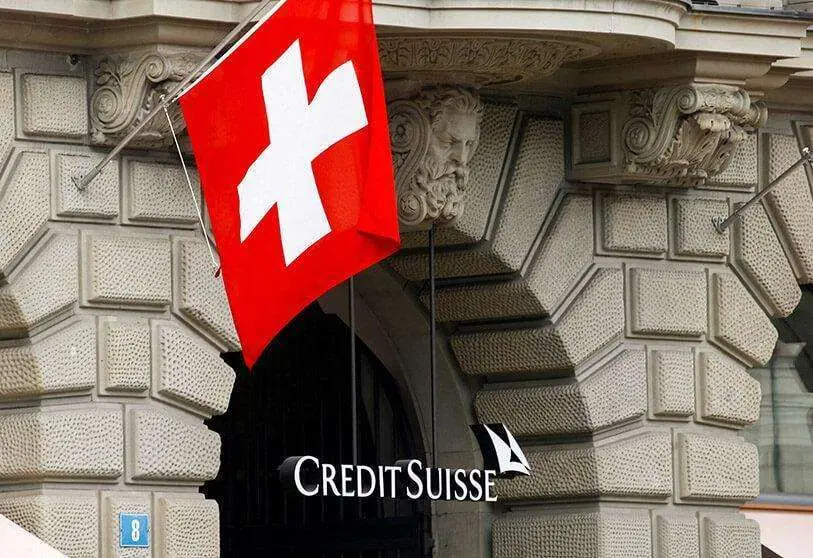Banking earthquake in peaceful Switzerland

The sharp losses that opened Monday on Asian and European stock markets show that the banking earthquake triggered by the bailout of Credit Suisse has many aftershocks, barely contained by the emergency measures taken against the clock by the authorities of the Swiss Confederation.
With a market capitalisation of $8 billion and losses in 2022 of $7.9 billion, the veteran Swiss bank, founded 167 years ago, had canvassed its main shareholders for the necessary capital increase. And, contrary to expectations, the Saudi National Bank turned them down. A major surprise, given that this response takes on a geopolitical dimension if it is framed together with other almost simultaneous measures: the recovery of Saudi Arabia's diplomatic relations with Iran, through Chinese mediation; the multiplication of its trade relations with China; and the refusal to increase OPEC's crude oil production in order to lower crude oil prices, among the most outstanding measures.
Faced with the threat of bankruptcy, the Federal Government urged the purchase of CS by the country's other financial giant, UBS, after having weighed up other solutions, including the partial nationalisation of the institution. The bank had taken advantage of a $50 billion liquidity lifeline from the Swiss National Bank to alleviate the flight of clients, for whom the Saudi's warning was the starting pistol for the stampede. However, this measure failed in stemming the flow of deposits.
The intervention of the Federal Government in Berne was prompted by the feeling that the prestige of one of Switzerland's greatest emblems, even above luxury watchmaking and Gruyere cheese, could collapse completely. UBS, CS's main rival and competitor, agreed to the deal after imposing its conditions: a 9 billion franc guarantee from the Confederation to cover potential losses and a further 100 billion francs in aid, made available by the Swiss National Bank (SNB) to alleviate liquidity problems. The hasty nature of the deal meant that shareholders were not consulted, and they have already found the whole thing on the table: UBS is buying CS for just over 3 billion euros in shares, so that CS shareholders will receive just one UBS share for every 22.48 of theirs, or the equivalent of CHF 0.70 per share, considerably less than the CHF 1.86 at which they were trading before the debacle.
This new crisis, which became evident with the bankruptcy of Silicon Valley Bank (SVB), the emblematic institution of technology and the supposedly most cutting-edge start-ups, shows that no one is sheltered from its consequences, and that the effects of each outburst are global.
In Switzerland itself, a paradise and refuge for the world's great fortunes, the debate has intensified to levels unknown in the land of calm and silence. For example, Cédric Wermuth, co-president of the Socialist Party, calls himself "frustrated and full of anger": "Nothing has changed since 2008, nothing at all. The whole financial system is sick and works in an absurd way". He added on his Twitter account: "But the big guys are getting off scot-free after having slapped the citizens in the face. The SP demands that those responsible be brought to account before a parliamentary commission, "to determine who did or did not do what in the SC" to lead to this debacle.
For its part, the centre-right SVP believes that the crisis of a systemic bank like the CS "is the result of mismanagement, cronyism and nepotism". In his opinion, this irresponsible and "fatal" decision-making endangers the entire banking sector and tens of thousands of jobs.
The Swiss media, for their part, point out that the bank's top executives have not stopped receiving their salaries of many millions of francs without taking responsibility when losses have been incurred because of their bad decisions.
Of all the criticisms, Thierry Burkart, president of the PLR Liberals, probably voiced the most stinging: "Switzerland is ashamed of having experienced a black day, which not only affects its character as a financial centre, but also shames the whole country".
And finally, the Greens, through their chairman Balthasar Glättli, wonder whether the merger between the two major Swiss banks will not become an even greater risk for the financial centre that Switzerland, hitherto considered the strongest and safest in the world, is.
As the swings on the stock markets show, confidence in the Swiss banking system, and by extension the entire financial system, has not yet been restored.

